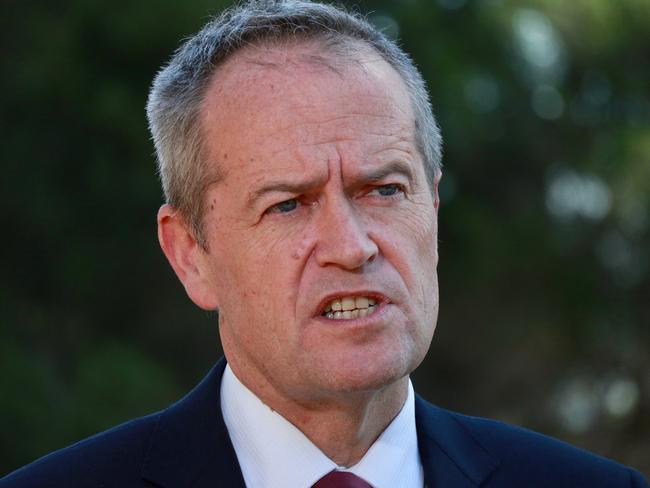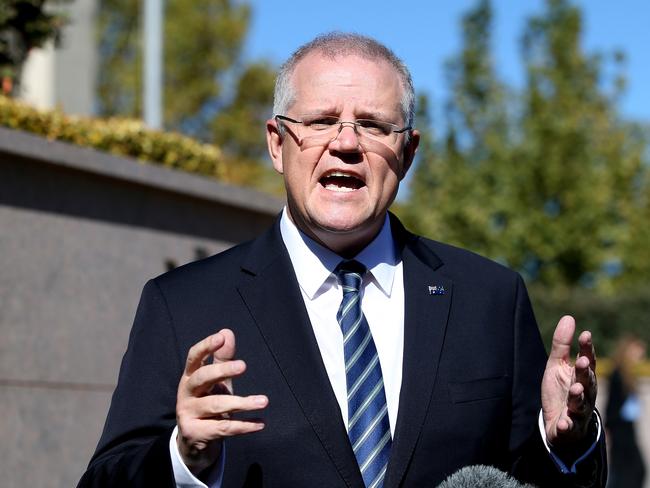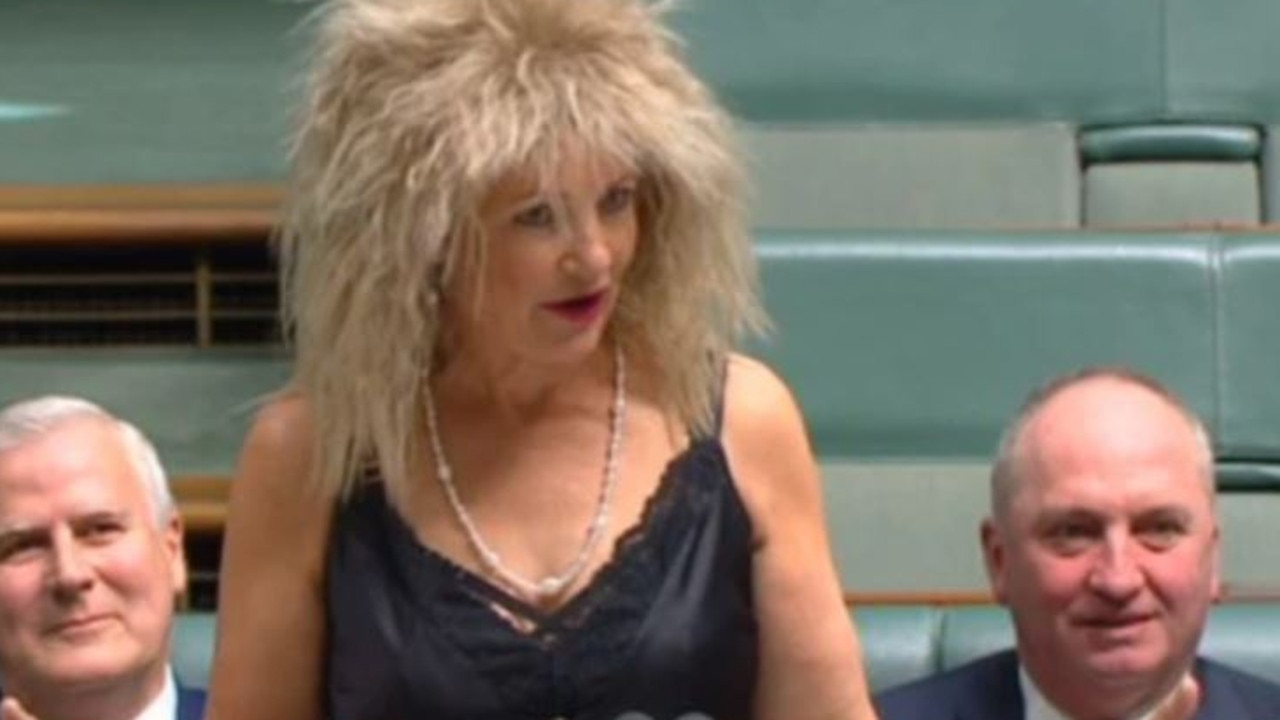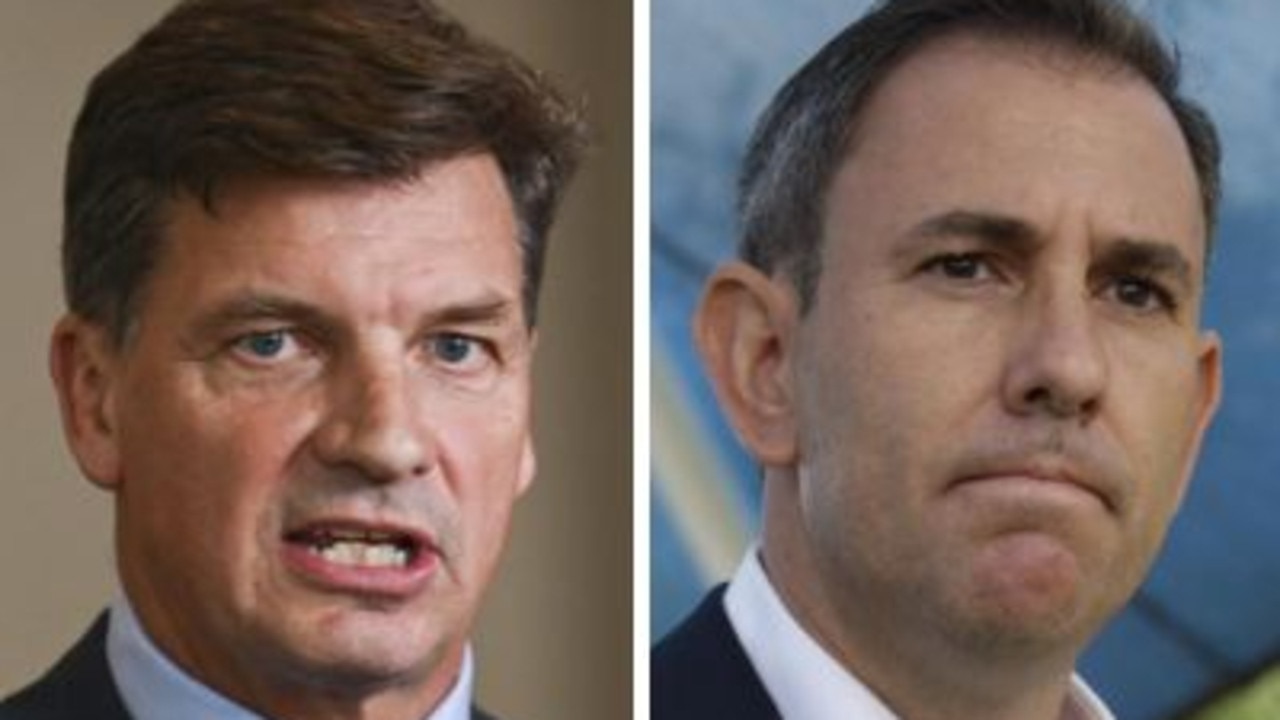Labor leader Bill Shorten outlines demands ahead of 2018 budget in major speech
BILL Shorten has called on the Turnbull Government to get rid of key ‘zombie measures’ that target pensioners and families in its next Federal Budget.
Fed Budget
Don't miss out on the headlines from Fed Budget. Followed categories will be added to My News.
BILL Shorten has declared the Turnbull Government must drop “zombie” measures targeting pensioners and families at next week’s budget as one of four things it must do to “pass the fairness test”.
In a major pre-budget speech today, the Opposition leader singled out the government’s plan to increase the pension age to 70 and axe the Energy Supplement available to pensioners, students and parents as “zombie measures” the government should dump next week.
He also called on the government to add an extra $17 billion to schools’ funding, drop its proposed cut to Australia’s corporate tax rate — which he claims has blown out to $80 billion — and commit more money to state hospitals as three other key priorities.
“Australians know that in too many ways to count the fair go as we know it is under threat,” Mr Shorten said.

The so-called zombie measures, which have been in the budget since 2014, had “no prospect of ever passing the parliament” but the government kept them alive in “a zombie-like status to pretend they can balance their books,” he said.
On the government’s proposal to cut the corporate tax rate from 30 per cent to 25 per cent, Mr Shorten said the costs had blown out to about $80 billion over forward estimates.
He also highlighted that modelling showed Australia’s banks would receive a $17 billion boost from the policy despite their “shocking predatory exploitation of Australians”.
“To reward these, literally, banking graverobbers is a sick joke,” he said.
The Government has been unable to lock in enough support with the Senate crossbench to pass the tax cuts but will try again after the budget.
Mr Shorten also called for the government to reverse what Labor claims is a $17 billion cut to schools’ funding over ten years.
The figure is based on the gap between the extra $23.5 billion the government committed to schools under its Gonski funding overhaul last year and what Labor pledged, without detailing where the funding would come from, when it was last in government.
On hospital funding, Mr Shorten called for the government to commit $715 million more to public hospitals under its deal with the states from 2017 to 2020.
The Government intends to continue paying 45 per cent of the cost of hospital funding.
Mr Shorten said there was “no room for hedging or half measures” in this year’s budget on May 8.
“If the government wants to deliver a fair budget they have to fundamentally change their priorities and their policies — health care, school cuts, the zombie measures hurting the least well off, and of course, the multibillion-dollar corporate tax give away,” he said.

Mr Shorten said the backflips the government would have to make to reverse its policy promises “would hardly be a dramatic change of pace” after it launched a banking royal commission and scrapped its plan to raise the Medicare Levy to fund the National Disability Insurance Scheme.
“A budget isn’t a statement about the nation’s books alone. It is a statement of a government’s values line by line, what you care about, where you stand, whose side you’re on,” he said.
“And this commitment is measured in real and important taxpayer dollars.
“So if the government chooses not to reverse their cuts to schools, to hospitals, to pensioners and families, if they don’t pass these basic tests, unarguable tests of fairness, everyone understands why.
“Everyone will know this is a government still cutting money from the services which fair dinkum Australians rely on, because they would rather spend the money on their one-point economic plan, a multibillion-dollar handout to the top end of town.”
Earlier today, Treasurer Scott Morrison told reporters in Canberra that next week’s budget would not be spending the benefits from a temporary windfall in tax revenues but would focus on strengthening the Australian economy.
Mr Morrison said it will be a responsible budget built on very cautious forecasts.
“We will continue to maintain that cautiousness in how we forecast and how we look ahead, but it is true that the economy has been improving,” he said.
“We are seeing our companies become profitable again. That is a good thing.”

Economist Chris Richardson said today the Turnbull government was enjoying the biggest surge in company tax revenue in 16 years.
He said this would put the budget bottom line in much better shape in both this financial year and next but warned it would be wrong for politicians to bank on such wealth beyond that.
He reiterated his objection to flagged personal income tax cuts.
“The oldest budgetary mistake in the book is to take better economic news and promise it away,” Mr Richardson said.
“We recommend just wait a bit and see the whites of the eyes of a couple of surpluses.” Releasing his Deloitte Access Economics Budget Monitor, Mr Richardson said he expected Treasury to produce “even happier” budget numbers than his own, allowing it to spend up to $8 billion per year on relatively solid personal tax cuts.
Originally published as Labor leader Bill Shorten outlines demands ahead of 2018 budget in major speech


